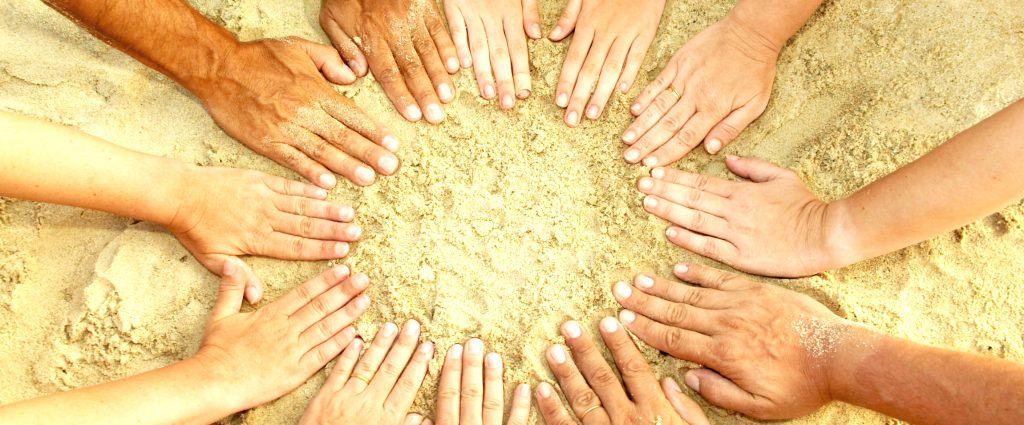Suicide Prevention is Everyone’s Business
September is National Suicide Prevention Month
Every day and Everyone has a role to play in Suicide Prevention
Signs and Symptoms…
Often there may be signs that someone is at risk for suicide.
The risk is greater if a behavior is new or has increased and if it seems related to a painful event, loss, or change.
It’s okay to ask. It’s okay to get help. Most who attempt suicide do not want to die.
If you or someone you know exhibits any of the following signs, seek help as soon as possible by contacting a mental health professional or by calling the Lifeline at 1-800-273-TALK (8255)* Press 1 for Veterans or military members, or chat at http://www.suicidepreventionlifeline.org/
• Talking about wanting to die or to kill themselves.
• Looking for a way to kill themselves, such as searching online or buying a gun.
• Talking about feeling hopeless or having no reason to live.
• Talking about feeling trapped or in unbearable pain.
• Talking about being a burden to others.
• Increasing their use of alcohol or drugs.
• Acting anxious or agitated; behaving recklessly.
• Giving away their possessions.
• Sleeping too little or too much.
• Withdrawing or isolating themselves.
• Showing rage or talking about seeking revenge.
• Displaying extreme mood swings.
• Talking about being very tired; extremely fatigued with life or life events.
No matter what problems you are dealing with, we want to help you find a reason to keep living. By calling 1-800-273-TALK (8255)* Press 1 for Veterans or military members, you’ll be connected to a skilled, trained counselor at a crisis center in your area, anytime 24/7.
*The National Suicide Prevention Lifeline is staffed with trained professionals and can help with a wide range of issues including substance abuse, economic worries, relationship and family problems, sexual orientation, illness, trauma from abuse, bullying, depression, mental and physical illness, and even loneliness.
For more information or Chat at http://www.suicidepreventionlifeline.org/
North Carolina Suicide Prevention Resources
1. American Foundation for Suicide Prevention (AFSP) North Carolina Chapter
http://www.afsp.org/local-chapters/local-chapters-listed-by-state/north-carolina/afsp-north-carolina
The American Foundation for Suicide Prevention (AFSP) established a new chapter in North Carolina in May 2014. The Chapter raises awareness about suicide and its prevention through community events, Out of the Darkness walks, AFSP programs, and gatekeeper trainings. The Chapter plans to expand training opportunities around the state, make more resources available to people whose lives have been affected by suicide, bring AFSP’s Interactive Screening Program (ISP) to North Carolina campuses and communities, and collaborate with other organizations in continuing to build a grassroots advocacy network that promotes legislation and policies to prevent suicide and improve mental health.
For support groups in your area for those touched by suicide loss https://afsp.org/find-support/
2. Division of Mental Health, Developmental Disabilities and Substance Abuse Services (DMH/DD/SAS)
http://www.ncdhhs.gov/mhddsas/
The Division provides strategic and operational leadership and oversight to the public mental health, developmental disability and substance abuse service system. The Community Policy Management Section is primarily responsible for leadership, guidance and management of relationships with local management entities (LME/MCOs). LME/MCOs are where people go to find information on receiving mental health, developmental disability or substance abuse services. They are available 24 hours a day. LME/MCO by county: http://www.ncdhhs.gov/mhddsas/lmeonblue.htm. The Division also operates the Crisis Solutions Coalition, which works statewide to decrease the use of emergency departments and increase access to other services to help individuals resolve the crisis and get back to their homes, families, friends, and work. Learn more at http://crisissolutionsnc.org/.
3. National Suicide Prevention Lifeline in North Carolina 1-800-273-8255
Provides access to 24/7/365 crisis response services, such as screening, triage and referral; walk-in crisis; mobile crisis management teams; or facility based crisis services through the DMHDDSAS Local Management Entities/Managed Care Organizations (LME/MCOs).
4. North Carolina Division of Public Health, Injury and Violence Prevention Branch (IVPB)
http://www.injuryfreenc.ncdhhs.gov/ For fact sheets and reports this link to read burden of suicide in North Carolina.
“It’s OK 2 Ask” website and provides suicide prevention trainings to communities. The Injury and Violence Branch also provides data and surveillance for suicide.
5. Students Against Destructive Decisions – North Carolina State Chapter
http://www.doa.state.nc.us/yaio/ncsadd.aspx
N.C. SADD has over 300 SADD chapters across the state. The chapters carry out projects during the school year such as seat belt checks of students driving to school, compliance checks of sales to minors, prevention activities at sports events, alcohol-free prom and graduation projects, school assemblies and community projects focusing on highway safety and underage drinking and drug prevention
6. North Carolina SAYSO (Strong Able Youth Speaking Out)
http://www.saysoinc.org/
Strong Able Youth Speaking Out is a statewide association of youth aged 14 to 24 who are or have been in the out-of-home care system that is based in North Carolina.
7. North Carolina Youth M.O.V.E. (Motivating Others through Voices of Experience)
Youth M.O.V.E is a nationally recognized, youth-led (ages 16-26) and driven organization devoted to improving services and systems that support positive growth and development. The organization unites the voices of individuals who have had experiences in various systems including mental health, juvenile justice, education, and child welfare.
8. Crisis Text Line – Text GO to 741-741 https://www.crisistextline.org/
For more information: Susan E. Robinson, M.Ed. NC DHHS/DMHDDSAS [email protected] 919-715-2262



